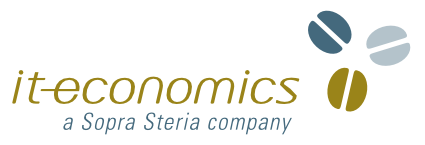
September 2023
The Significance of Quick-Wittedness in Effective Communication
Quite often in the business landscape, we hear questions and statements addressed to us and we rush to answer and sound interesting and intelligent.
In other words, we want to be quick-witted and respond adequately and with good taste. In such situations people strive to project professionalism, social acceptance, and self-confidence, and to add to that – feel good about themselves. But more often than not it happens that we lose our thoughts, get a blocker, or just cannot induce enough confidence to answer adequately.
Luckily, there is quick-wittedness, a concept that we should keep in our communication arsenal. But what does it mean to be quick-witted? Is it synonymous with having a sharp mind, being considerate, and adaptable? Or does it entail intelligence, insightfulness, and astuteness?
In September, the women@it-economics came together for a training session dedicated to quick-wittedness, and here’s a brief overview of what this concept means.
Studies reveal that social intelligence is more than just knowing the right thing to do or say. It is about the moment, observing things around us, listening, and reacting quickly enough to say something funny. We all probably know someone who possesses the gift of thinking on their feet, invoking witty responses effortlessly. Those people radiate charisma, and it is regardless of their IQ or various other personality traits.
The quick-wittedness is not an innate trait; it can be nurtured. There are compelling reasons why we should incorporate quick-wittedness into our life:
Beliefs
Our beliefs shape our perceptions and reactions, either empowering us or constraining our potential
Perfectionism
The relentless pursuit of perfection can impact our quality of life, prompting us to ask, ``Is it truly necessary, or is it enough?``
Expectation
The chasm between our expectations and reality often leads to conflict. Embracing realistic expectations can empower us and promote better adaptation and responses.
Control
Are we operating within our sphere of influence or let down by concerns beyond our control?
During the training session, we defined what quick-wittedness is, and looked at beliefs, blockages, control, and responding to external stimuli. We also learned how to train our communication skills and gain confidence with every small progress.
One of the most challenging aspects of the quick mind is that it must be spontaneous. Wit comes from the moment itself. It takes being able to observe things that are happening around us and then reacting quickly enough to say something funny. This means listening to other people but also paying attention to everything that is going on around us.
A quick mind comes from skillfully picking up on the little details. To be able to do this, you need to stay focused enough to notice them. With that being said, we enlist our key takeaways from this invaluable training:
- Quick-wittedness is essential in the business world, enhancing one’s ability to respond adequately and professionally to questions and statements. It can be learned and improved by addressing beliefs, blockages, and control mechanisms that may hinder effective communication.
- Perfectionism, managing expectations, and understanding the “Circle of Influence” versus the “Circle of Concern” are critical aspects of overcoming these challenges.
- Developing communication skills, such as active listening and tone modulation, can enhance one’s ability to respond quickly and effectively.
It-economics is committed to keeping trained and qualified professionals to maintain and add high value and standards through constantly providing training and development opportunities. If you’d like to learn more about our culture and available positions, please do not hesitate to contact us.
You need to load content from reCAPTCHA to submit the form. Please note that doing so will share data with third-party providers.
More Information




